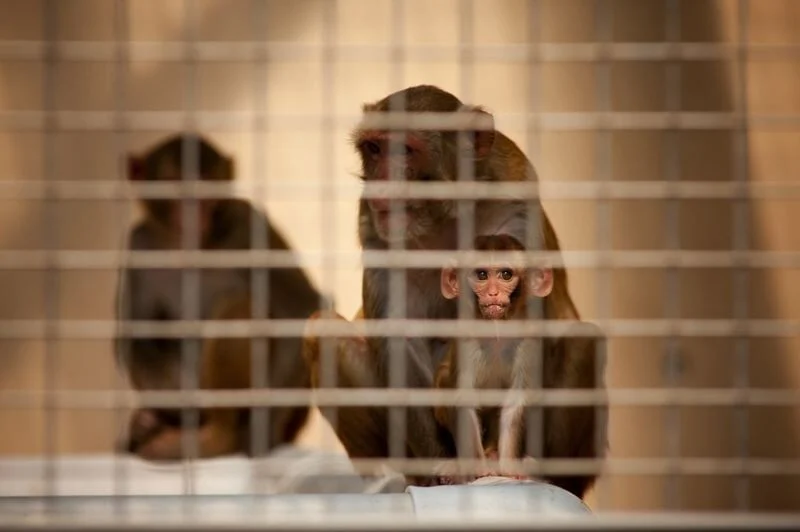
As Oregon Gov. Tina Kotek presses Oregon Health & Science University to shutter its primate research center in Hillsboro, the public university argues that closing it down would come at far too great of a cost — financially and scientifically.
News broke in late March that the governor’s office had released a statement urging the closure of the controversial site at the juncture between Hillsboro and Beaverton. In written communication provided to the News-Times, a spokesperson said that Kotek “directly advocated for OHSU leadership to complete their current research obligations and move towards shutting the center down in a humane and responsible manner.”
Responding to the directive in an email to employees, Peter Barr-Gillespie, chief research officer and executive vice president of OHSU, said he has been and will continue to meet with the governor “to discuss the important research underway at the West Campus,” home to the primate center and OHSU’s Vaccine & Gene Therapy Institute.
Barr-Gillespie argued closure would be devastating to employment: The site employs 561 people, including faculty, students, members of labor unions and unclassified administrative staff.
Beyond putting jobs on the chopping block, Barr-Gillespie said shutting down the center would “eviscerate critical research projects” — spanning work to develop vaccines against flu and tuberculosis, to carrying out efforts to improve women’s health, understand reproductive biology and advance behavioral and mental health efforts.
But while supporters of the facility — one of seven federally funded primate research centers in the United States — have touted its decades of work toward medical advancements, the site has drawn opposition from animal rights activists and medical ethicists who label the treatment of animals at the center as “torture” and say there are better ways to conduct research.
A recent call to shut down the primate center emerged as OHSU explores a merger with Legacy Health. The advocacy group Physicians Committee for Responsible Medicine, which has long opposed the center, has launched television ads and public campaigns urging residents to demand its closure as part of the acquisition of Legacy.
“Monkeys are being tortured and killed — using your tax dollars! Tell OHSU to shut down the primate facility and put those dollars towards patient care,” Physicians Committee for Responsible Medicine states on its website. “The money spent on the enormous monkey facility could be better spent improving patient care — hiring more health care providers — and better pay for current staff — to ensure this merger means Oregon residents have the best possible care.”
OHSU officials say the media campaign prompted the governor’s response.
Meanwhile, an oversight board under the Oregon Health Authority unanimously voted against the approval of the OHSU merger with Legacy Health on April 7. The Community Review Board’s decision is a recommendation that will be brought up to OHA’s Health Care market Oversight program at a later meeting. The Oregon National Primate Research Center was discussed during the review board’s deliberations.
A broader reckoning for science?
Barr-Gillespie placed the urged closure in the context of recent federal efforts to dismantle scientific institutions like the National Institutes of Health and Centers for Disease and Control Prevention — the former of which supplies $56 million of the center's $60 million budget, as reported by Willamette Week.
“Like you, I am witnessing a concerted federal attack on science that will have profound effects on our ability to find effective therapies and cures for diseases, and that will diminish health outcomes for generations to come,” the executive said in an email.
And if the center were to close, it would be far from an easy feat — and quite expensive.
The site houses approximately 5,000 animals which would need to be rehomed, and the cost of closure would likely be well over $100 million, Barr-Gillespie added.
“Absorbing these costs would be devastating for OHSU finances and would significantly impact our ability to carry out our health care, education and research missions, especially when we are facing uncertainty and challenges with the health care financial model, while we observe the Department of Education's dissolution, and while we weather changes to NIH's funding priorities and willingness to support science,” he said.
Kotek’s office noted that the governor “has very limited authority under Oregon law to weigh in on the proposed merger.”